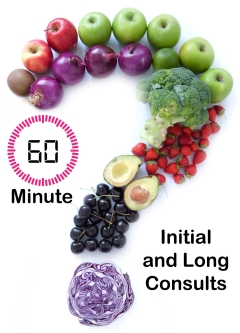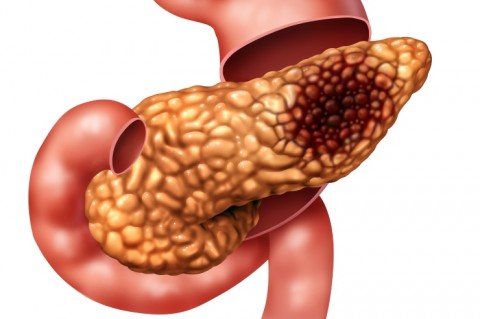DrCarney.com Blog
Fatty Foods May Increase Pancreatic Cancer Risk
Pancreatic cancer is a predominantly fatal form of cancer in adults. It is the third leading cause of cancer-related deaths in the United States, and by 2020, it is expected to surpass colorectal cancer as the second leading cause of deaths from cancer in the United States. Pancreatic cancer is so deadly that 9 out of 10 patients suffering this form of cancer usually die within the first 5 years of being diagnosed.
Despite the deadly prognosis, many cases of pancreatic cancer can be prevented by making healthy lifestyle and dietary choices. Diets play a significant role in the development and prevention of pancreatic cancer. Studies suggesting a link between high fat diets and increased pancreatic cancer risk have appeared in various medical journals.
Fatty Foods May Elevate Pancreatic Cancer Risk
The findings of a 2009 study published in the Journal of the National Institute of Cancer revealed that regular consumers of high-fat diets, especially diets dominated by fats from animal sources, such as meat and dairy products, are more prone to develop pancreatic cancer than individuals on low fat diets and those who completely avoid fatty foods. According to this study, individuals who consistently consumed diets rich in animal fats, such as meat and dairy products, had 36% higher risk of developing pancreatic cancer than rare and non-consumers of fatty foods. The researchers concluded that a surge in pancreatic cancer risk is associated with generous intake of fatty foods.
In addition, a 2012 report from the American Institute of Cancer Research (AICR) Continuous Update Project, one of the largest cancer prevention research projects in the world, showed that obesity may be a major contributing factor to the development of pancreatic cancer. In this report, experts at the American Institute of Cancer Research estimated that maintaining a healthy body weight can help prevent about 8,300 cases of pancreatic cancer in the United States annually.
Fats and Pancreatic Cancer: What Is the Link?
Excess fats are stored in the adipose tissues of the body. These tissues produce cytokines, which induce inflammation and the mutation of healthy pancreatic cells to cancerous cells. In addition, excess body fats promote insulin resistance, resulting in the elevation of blood levels of insulin, insulin-like growth factor-1 (IGF-1), and other cancer-promoting hormones. IGF-1 is one of the most potent carcinogens found in humans; it promotes the conversion of pre-cancerous lesions and mutated cells to invasive cancerous cells.
Cut Down Your Pancreatic Cancer Risk by Taking Fatty Foods off Your Plates
About 53,670 Americans are expected to be diagnosed with pancreatic cancer in 2017, and more than 43,090 lives will be cut short by this disease in the same year. You do not want to end up as one of the casualties of this deadly disease. Maintaining a healthy body weight and taking those dangerous fats off your plates are two measures you can adopt to reduce your pancreatic cancer risk.
Additional Resources:
(1) The American Cancer Society - Pancreatic Cancer Risk Factors
(2) Thousands of Pancreatic Cancers in the US Can Be Prevented
(3) Hirshberg Foundation for Pancreatic Cancer Research - Pancreatic Cancer Facts
(4) The American Cancer Society - Key Statistics for Pancreatic Cancer
(5) Dietary Fat Linked to Pancreatic Cancer
Preview the "Cancer Prevention & Women's Health" Trailer
Survive and Thrive: Which common (but seemingly unrelated) factors link many health problems together, including cancer and other women's health issues? Is cancer preventable? This DVD shows you which disease risks are worsened by excess estrogen, which you create in your body by choices in foods and beverages. Banish multiple health problems with the Starch-Smart® System.
One Hour Phone Consult with Dr. Carney

Telephone Food Coaching Sessions with Linda Carney MD
Due to demand for nutritional advice, Dr. Carney's offers Starch-Smart® System "Dietary Care Extraordinaire" Food Coaching telephone sessions. The first sessions is always one hour. Subsequent sessions can be thirty minutes or one hour:
Click Here For 60 Minute Food Coaching Session
Please Note: Food Coaching sessions are not medical appointments and are not intended to replace your own physician. No tests will be ordered and no prescriptions will be provided.
When you subscribe to the blog, we will send you an e-mail when there are new updates on the site so you wouldn't miss them.




